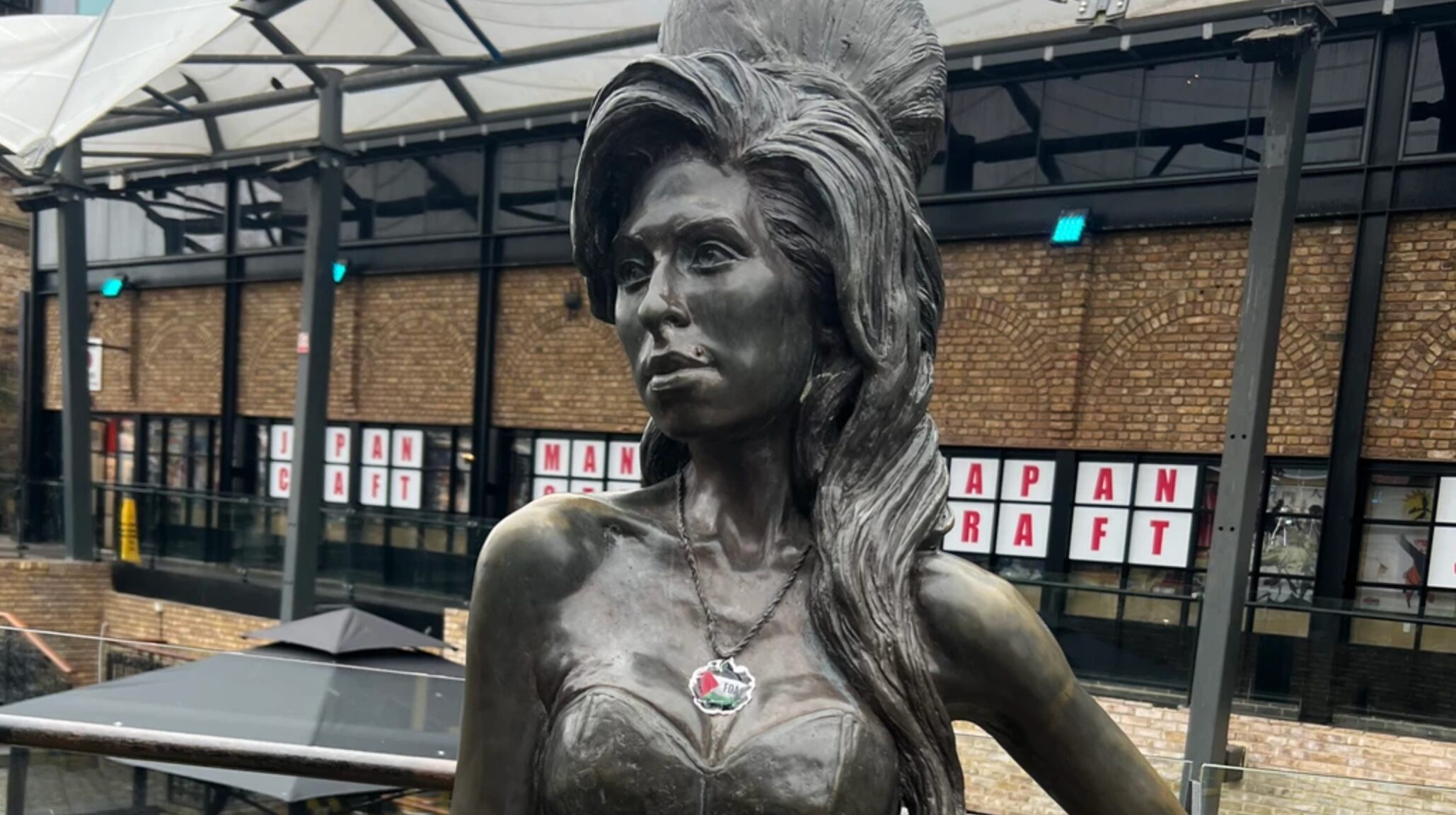An Amy Winehouse statue in London has been defaced by protestors who covered the statue’s Star of David necklace with a Palestinian flag, leading to widespread outrage. The late singer’s statue, located in London’s Camden Market, was targeted during a large protest in the city. The incident has sparked a heated debate, with some condemning the act as disgraceful and antisemitic, while others, including Amy’s father, have offered a more measured response.
Key Takeaway
The defacement of the Amy Winehouse statue in London with a Palestinian flag has ignited controversy, prompting strong reactions and raising questions about the intersection of politics and public monuments.
Protest and Defacement
During a recent protest in London, pro-Palestine demonstrators placed a sticker of the Palestinian flag on the statue of Amy Winehouse, obscuring the Star of David necklace that the statue depicted her wearing. The Star of David is a symbol of Jewish identity and Judaism, and the defacement of the statue has elicited strong reactions from various quarters.
Reactions and Controversy
The defacement of the statue has triggered widespread condemnation on social media, with many expressing outrage at the act, describing it as disgraceful and revolting. The incident has also raised concerns about antisemitism and the use of public monuments for political statements.
However, Amy’s father, Mitch Winehouse, who oversees her estate, has offered a more tempered response to the incident, stating, “It’s not very nice but it was just a sticker.”
Statue and Legacy
The bronze statue of Amy Winehouse was unveiled in 2014, three years after her untimely death in 2011. Situated in Camden Market, the statue has become a site for fans to pay their respects to the iconic singer, often leaving flowers in her memory.
Resolution
Following the defacement, the Palestinian flag sticker has been removed from the statue. The incident has sparked discussions about the boundaries of political expression and the sanctity of public memorials.

